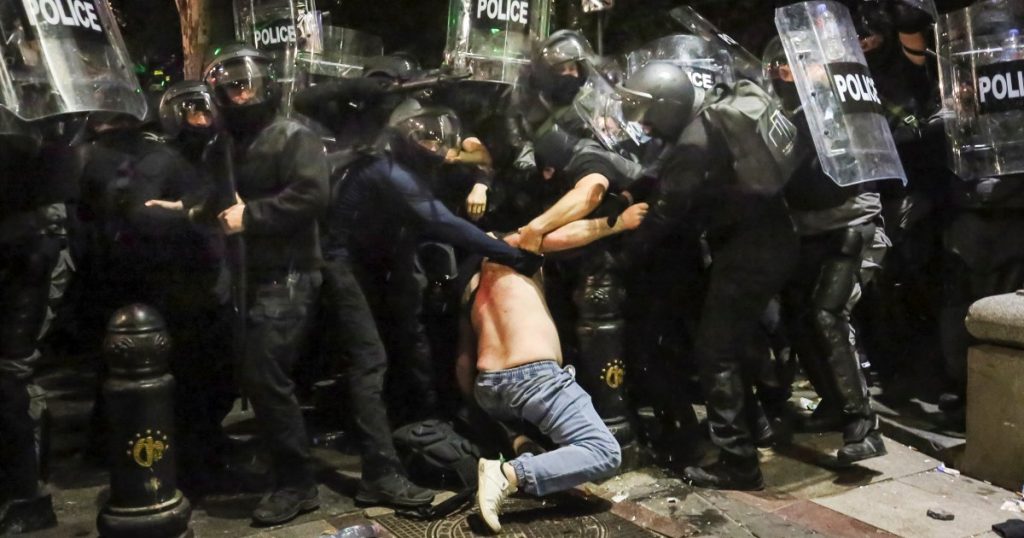Security forces in Georgia used aggressive tactics against protesters outside parliament, escalating tensions after lawmakers discussed a controversial “foreign agents” bill. The bill, seen as authoritarian and Russian-inspired by the opposition and Western nations, sparked demonstrations outside the Soviet-built parliament building. Police officers were seen physically attacking protesters, who retaliated by throwing eggs and bottles. Tear gas, water cannon, and stun grenades were deployed to scatter the demonstrators.
Levan Khabeishvili, leader of Georgia’s largest opposition party, the United National Movement, was reportedly beaten by police, sustaining injuries including a black eye. The escalation of violence led to around 2,000 protesters blocking Tbilisi’s main Rustaveli Avenue, using café tables and rubbish bins as barricades. Some chanted derogatory remarks towards the police, reflecting the deep divisions in the country.
Earlier, riot police used pepper spray and batons to disperse protesters attempting to block lawmakers from leaving parliament through a back entrance. Georgian President Salome Zourabichvili, known for her opposition to the government despite her ceremonial role, condemned the crackdown as “unwarranted, unprovoked and out of proportion,” emphasizing that the protests had been peaceful.
The passage of the “foreign agents” bill has exacerbated existing divisions in Georgia, pitting the ruling Georgian Dream party against a coalition of opposition groups, civil society organizations, and prominent figures. The protest movement has garnered widespread support, with demonstrations drawing participants from various sectors of society. The clash between security forces and protesters reflects the broader political and social tensions within the country.
The use of force by security forces has drawn strong criticism from both domestic and international observers, who have raised concerns about the heavy-handed tactics employed against peaceful protesters. The escalation of violence on the streets of Tbilisi has raised fears of further unrest and instability in the country. The government’s response to the protests will be closely watched as the situation continues to evolve.
As the political crisis deepens in Georgia, with tensions running high over the controversial bill and the violent crackdown on protesters, the future of the country’s democratic institutions hangs in the balance. The government’s handling of the situation will be crucial in determining the outcome of the protests and the direction of the country’s political landscape. As Georgia grapples with internal divisions and external pressures, the need for dialogue and a peaceful resolution to the crisis becomes increasingly urgent.


